|
I stumbled into entrepreneurship in 2016 after studying philosophy, theology, and anthropology for my undergraduate and graduate degrees. Ending up in the business world felt like a long and winding road filled with sleepless nights, much discernment, and many conversations. In the few years after graduating from college, like many early 20-year-olds, I felt untethered and unsure of my direction. What was my direction in life? What was my mission? How did the Lord want me to use my gifts and talents to serve him? At the time, I attempted to answer these questions by searching for women who had accomplished work in the same field that I was going into. I spent endless hours looking for women on LinkedIn in their 40s and 50s who had achieved a successful career while also being married and raising a family. My search was futile. Although I did find a couple of single Catholic female entrepreneurs to connect with, for years, I felt like I was “making it up as I went along”: trying to weld married and family life while scaling a business, hiring and firing employees, serving clients, and trying to keep God in the center of it all. Every vocation for women within the Church is beautiful and worthy, but being a Catholic entrepreneur in particular has been challenging. Although I have developed some great friendships with secular business women, I can’t connect with them fully about discerning business decisions with my spiritual director or praying a daily rosary for my employees. Within the Catholic sphere, I can’t completely relate to stay-at-home mothers or women who are working a 9-5. I desperately needed a mentor but could not find one who was willing to devote time and effort to my growth. Speaking to women’s particular vocation, Pope John Paul II in Mulieris Dignitatem spoke to every woman’s calling to love: “The moral and spiritual strength of a woman is joined to her awareness that God entrusts the human being to her in a special way. Of course, God entrusts every human being to each and every other human being. But this entrusting concerns women in a special way - precisely by reason of their femininity - and this in a particular way determines their vocation”. Here, Pope John Paul II illuminates women’s ability to “receive the other” because of the design of their femininity. Through their motherhood, spiritual and physical, women are capable of receiving, knowing, and loving others in a manner different to men. God entrusts humanity to women, knowing that she is uniquely made to care for those around her. This act of entrusting carries through to every aspect of our modern world, including the sphere of business. Just as a mother nurtures her family, every woman in business has the mission to nurture those in her care: her clients, her employees, her colleagues. In a special way, Catholic women entrepreneurs co-create with God to create something out of nothing. Every woman-owned-business begins as merely a dream placed on her heart. Her mission is to share with the world her services and products—glimpses of God’s own heart and a genius that only she can share. This is why mentorship is essential: so that women who are called to practice business can find and live out their own unique mission in this world. Women are called to cultivate the gifts and talents of others, to foster the dreams that only they can bring forth. A mentor provides guidance, critique, and reassurance as a young person matures. This is crucial to the formation of any woman, entrepreneur or not, but also fulfills the role of each Christian to evangelize the world. Without this relationship, one might not have the tools and resources to realize their full potential. By fostering the gifts and talents of others through mentorship, women are living out their feminine genius. My Co-Founder, Emma Moran, and I created Catholic Women in Business in 2018. CWIB is an online resource of Catholic women who are seeking to live a life of faith while striving for excellence in their careers. We hope that it’s a space for women to cultivate mentorship and connection. My dream is to initiate a movement where there is more mentorship available within the Church, for women and men. In encouraging these relationships, I believe we will be able to activate the missions of those within our communities, answer the Church’s call to a New Evangelization, and to bring forth the Gospel into our society.
1 Comment
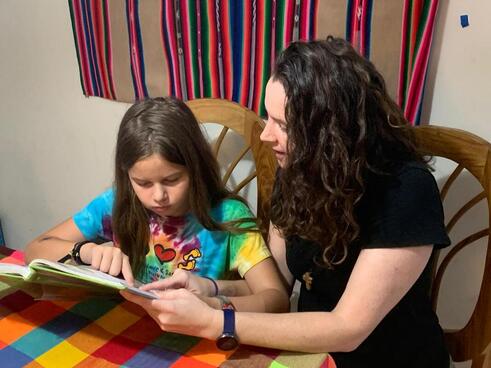 Like most of you, my family and I have been in quarantine. When El Salvador’s President Nayib Bukele first announced the prospect of a quarantine—before there were any confirmed cases here—our family decided that it would be best to practice physical distancing right away. The public hospital system here in El Salvador is precarious under normal circumstances, and once the virus is at its peak, it won’t matter how much money you have. If you require a hospital bed, you will go where there is one available. The national convention center in San Salvador is being converted into a 3,000-bed hospital, with 1,000 of those beds designated for intensive-care patients. Our best bet for surviving this pandemic is to stay home and find ways to continue our relationships with the people at our ministries without being physically present—a challenge, but also an opportunity. My ministry, the women’s cooperative ACOMUJERZA, has come to a screeching halt. We were in the middle of a huge order for the Education Ministry of El Salvador. We are sewing over 3,000 school uniforms as part of a government-funded program. This order is the biggest we have ever been contracted to make, and frankly before this pandemic our members were scrambling to figure out how we were going to sew more than 3,000 pieces in 60 days and how we were going to pay everyone to make all of those uniforms. ACOMUJERZA applied for a loan from a non-governmental organization that has helped us in the past. We received the preliminary approval for the loan, but with all of the economic uncertainty, the NGO froze all lending for the foreseeable future. ACOMUJERZA members packed up all of the finished uniforms and prepared the building for the beginning of a nationwide mandatory quarantine on Saturday, March 21. There is so much uncertainty, and yet when I talk to each of our members, they remain positive. The government has promised a government grant of $300 a month to unsalaried workers—those most in need, which applies to some of our members—but that money has not been distributed yet. With 12 days into our quarantine, I worry about how my friends at the cooperative are surviving and if they have enough food to eat. I spoke with my friend Juanita from the women’s cooperative the other day. She told me that, when she first went home after the president declared quarantine, all she wanted to do was cry. She felt depressed and sad to not be able to go to work and she felt a loss of her freedom. But after a few days, she pulled herself out of her sadness, and she told me about all of the things that she and her daughter decided to do during the mandatory quarantine. They already painted a few rooms in their house, got rid of old clothes, sewed masks and spent time tending to her garden. “Now the time just seems to be going by quickly, thanks be to God.” she said to me during our last phone call. We chatted a bit longer and before getting off the phone, she reminded me that “we are all called to do our part and, for now, our part is staying at home.” While checking over my daughter Evey’s daily journal assignment for school, I realized just how I am doing my part. She was assigned to write about what she liked and didn’t like about being homeschooled during the quarantine. She wrote, “I like homeschooling because it is fun and I get to do more fun stuff with my mom.” Maybe “doing my part” is keeping spirits up among the members of the cooperative, sharing my gifts and talents with Maryknoll Lay Missioners, spending more time with my children and modeling for them how to adjust to an ever-changing reality This blog post was re-published with permission from Maryknoll Lay Missioners. To learn more about their work and mission, please click here. To learn about other faith-based service opportunities, please click here. There’s a lot of preparation that goes into the holiday season. It seems in our secular society as soon as the calendar changes to November that the world begins buzzing with cooking, baking, buying, wrapping, and planning. Our calendars overflow with gatherings and obligations and before we know it, it’s a new year. As Catholics, we know that this time of year tells a different story. However, the loud hubbub of secular holiday cheer swirling around us can make it difficult to proclaim it, even to ourselves. What would it look like in our daily lives over these next few weeks if we as Catholics challenged ourselves, in this season of frenzied preparation, to prepare ourselves to wait? What might that look like? Here are a few steps that we can take. OBSERVE We cannot decipher what steps to take if we do not spend the time observing where our current steps are leading. Take some time over these next few weeks to observe your spiritual and physical life. Make note of the areas of your life that you feel you are consistently inviting the Holy Spirit to be a part of and those areas in which He has not received an invitation. Notice the time of day or week that anger, frustration, hurt, or anxiety creep into your heart and mind. Where are your moments of joy, praise, and thanksgiving? How are you caring for your physical body and its environment? Observe how you are fueling your body and your mind. Is the source and substance of that nourishment strengthening your body and mind to be the best version of yourself? Are you spending moments in joyful movement, whatever that may look like for your body, in praise and thanksgiving of the vessel that is fearfully and wonderfully made? Simply take time to observe and collect information on your current state. Try not to put a label or judgment on your observation, but rather work to build your awareness. REFLECT Once you have collected your observations, spend some time reflecting on this newfound information and present it at the foot of the Cross. Implore the Holy Trinity to open your eyes and your heart to reveal to you the areas in your life that could be improved or strengthened. Ask for divine intervention to reveal to you the strengths that you possess and the gifts and talents that have been given to you. How might you utilize these strengths, gifts, and talents to bring life and light to those areas of your life that may be lacking? Be patient in your reflection. Do not be afraid of silence! It is often within the quiet of silence that He will make His presence known to you. Allow this prayerful, reflective time to turn your observational information into knowledge. ACT It’s time to turn that knowledge into a plan. Through your observation and reflection, you will have gathered the necessary tools to be able to move forward in your journey. Carry the strengths that have been revealed to you and humbly face the shortcomings that you have observed. What does action look like for your journey? What steps are required to strengthen areas of your spiritual and physical life that may be lacking? Put your plan into practice and remain vigilant and prayerful of the different ways that you can tweak your plan. WAIT We have spent the remaining weeks of the liturgical year in observation, reflection, and action… and now we wait. As you enter into the Church’s new year and the season of Advent, commit to the action plan you have created and joyfully await the celebration of the birth of YOUR Savior. If you’ve put the work into the first three steps, you will find that your action plan is in fact leading you to prepare for the tiny babe wrapped in swaddling clothes. “For a child is born to us, a son is given us; upon his shoulder dominion rests. They name him Wonder-Counselor, God-Hero, Father-Forever, Prince of Peace.” (Isaiah 9:5) Prepare to wait. Prepare the way. Prepare the place and invite Him to take residence in you – body, mind, and soul. For more resources to accompany you during this Advent season, please click here. Today is the optional memorial of Sts. Cosmas and Damian, who were twin brothers born in the third century in Arabia. Both Cosmas and Damian became physicians, and in true Christian charity, refused to accept payment from their patients. During the persecutions under Roman Emperor Diocletian, the brothers’ renown in their Christian community made them easy targets. They were imprisoned and tortured by various means in an effort to force them to recant their faith, and after surviving most of these tortures while remaining true to Christ, Cosmas and Damian were finally beheaded.
What draws me to the story of Sts. Cosmas and Damian is not only their adherence to the faith while under excruciating torture, but also their unfailing generosity to those around them. They tended the sick in their community and did so without asking for or taking any monetary compensation. I like to think this was because they were often helping sick people who were also too poor to afford a physician in the first place. Generosity is a virtue that can easily be motivated by pride—we do good things for others, secretly hoping to get accolades or some kind of reward for being so self-giving. But I think generosity is really about giving to others —material, spiritual, or emotional—because you know the other will benefit, even if there is no compensation for you in return, or if (like Cosmas and Damian) you refuse to take any. Generosity is not only exemplified by a wealthy man donating money to charitable causes, nor only by going on mission trips to help those in poverty, nor is it demonstrated by showering poor children with gifts at Christmastide. We can cultivate the virtue of generosity in ourselves much closer to home and on a daily basis—just as St. Cosmas and St. Damian did. Generosity is lived out by a talented musician volunteering at his church to worship God in song, or by a mother who prepares and brings home-cooked meals to other families in her parish who have a new baby or have had a recent surgery. There is also spiritual and emotional generosity: being present and available to our siblings, children, parents, or friends as they struggle with transitions or discernment. When we engage in these acts of generosity, we serve Christ by serving others—even if it is not necessarily a sacrifice for us to do so. (Although I know for myself, the sacrifice that comes with being generous is striving to be selfless in my generosity and not to expect or desire reciprocation.) We are called to use anything that we have been given in order to glorify God. And what about those—presumably poor—people that Sts. Cosmas and Damian healed and treated? Who knows what kinds of generosity they were able to offer to their benefactors as a result of their encounter with the twin saints? Maybe they were generous in their prayer lives and interceded for the physician brothers. Maybe they were inspired by the generosity and faith of the two saints and went on to assist others in their community. Even if we cannot always be materially generous to each other, giving of ourselves in any capacity can cause a ripple effect of generosity throughout our communities. We can also learn to support and foster the generosity of others by thinking about how we respond when we are offered someone’s generosity, whether we asked for it or whether it was volunteered to us. Personally, I am working on asking for help or accepting generosity with humility. I know that I am less likely to help someone if they repeatedly protest my efforts or insist that I am doing too much, and therefore I try not to protest or downplay the good work that someone does for me. I try to remind myself that by serving each other, we are ultimately serving Christ. Questions for Reflection: Have you ever been the recipient of an act of generosity that changed your life? How so? Contemporary Western culture seems to promote nothing but pride these days; it insists that only those who are proud, selfish, and disobedient can effect change or succeed in life. But salvation history and the lives of the saints tell us a different story—namely, that pride is the downfall of mankind, and that humility is what ultimately exalts us.
Humility is a difficult virtue to embrace because it is such a quiet one and is often mistaken for what it is not. In his Summa Contra Gentiles, St. Thomas Aquinas describes humility thus: “Truly, the virtue of humility consists in this, that one keep himself within his own limits; he does not stretch himself to what is above him, but he subjects himself to his superior.” Being humble does not mean debasing yourself and refusing to acknowledge that you have any gifts or talents whatsoever—and some would argue that in fact, such an attitude is actually hidden pride! The truly humble man understands that he is not the greatest at anything, and that while he is better at something than others might be, his gift ultimately comes from God and is to be used for the glory of God, not for personal accolades. The prime example of this is the Blessed Virgin Mary. She was a young woman without wealth or powerful connections, and yet her submission to the will of God altered the course of human history and opened the door for the divine Messiah to enter the world He would one day redeem. She did not attempt to argue that she was utterly unworthy of the grace bestowed on her, but rather submitted with her humble fiat, “May it be done unto me according to your word.” The truly humble man knows his own limitations—he submits to the authority not only of God and of the Church, but also to the legitimate authority of the government and the workplace. A humble man does not go looking for opportunities to gain power and prestige. He dies to himself for the sake of others—he harbors no resentment when others’ work is extolled while his goes unnoticed, and he uses those moments of humiliation to draw closer to Christ. The humble man continues to use his gifts even if no one but God is going to see or acknowledge them. And when his gifts and accomplishments are acknowledged by the world, the humble man turns that praise back to God instead of focusing it on himself. The humble man does not need to project an Instagram-perfect image of his life to the rest of the world: he accepts that he is a work in progress, can admit when he is wrong, and can accept criticism with grace. Sometimes true humility seems impossible to achieve. Because we are fallen creatures wrapped up in ourselves, we have to constantly work toward selflessness. One method of doing this is by praying The Litany of Humility. This prayer asks Jesus to deliver us from desires and fears fueled by pride—from the desire of praise, to the fear of being wronged. But the beauty of this litany is that it not only asks that we be freed from our pride, but it also asks for the grace to desire that others may be better than we are, loved more than we are, holier than we are. True humility is not downplaying our own roles, but is setting aside our own desires so that others can rise higher and do more for Christ than we ever could. It’s being the Andrew to someone else’s Peter and the Barnabas to someone else’s Paul—calling forth someone to the good or encouraging their potential, even if means that person becomes greater than ourselves. Matt Maher has his own take on the Litany of Humility in his song “Every Little Prison.” What I like about Maher’s version is that he adapts the prayer to be more recognizable for the modern Christian. Pride takes many forms in this era of Instagram followers, Facebook “likes,” and the 24-hour news cycle—we spend time “wondering if I am relevant and liked” and “wanting to be seen.” Ultimately, humility requires us to turn to God instead of other things and to trust in him, in his mercy and his wisdom, rather than becoming slaves to our fears of being judged, or of not being loved, or of having to let go. By praying for freedom from the prisons created by pride, may we live more confidently in the love of God and in doing his will. “I have no gift to bring…that’s fit to give the king.” -The Little Drummer Boy What do I have to give to the Lord this Christmas? It’s a question I find myself asking as we hum along the Advent season. Amidst the beautiful lights, the Advent wreaths, the Christmas trees, and the dark nights, I turn to different types of Christmas music to help me prepare for the coming of Jesus. I love the enchanting songs and hymns written specifically to prepare us for this season. I love songs like “O Come, O Come Emmanuel,” “What Child is This?” and “O Holy Night.” But lately, as I’ve been reflecting on what I have to give the Lord this Christmas, I think of another of my favorite songs: The Little Drummer Boy. It’s a simple song. A little drummer boy is invited to meet the Newborn King and offers to play for him. It’s a touching story that has become almost like a Lectio Divina meditation of the birth of Christ for me throughout the years. This song places me easily within the scene: a cold, dark night, the smell of strewn hay, the breath of cattle, a humble couple, a group of shepherds, and then, a manger holding Christ Himself: the Creator, the Savior of the World, the King of Kings. In my meditation, I take the place of the little drummer boy. He, like Jesus, is poor and humble. Upon seeing the gifts of the magi and the recipient of the gifts, he reflects, “I have no gift to bring…that’s fit to give the king.” He has no frankincense or myrrh, no gold or silver. He has only himself and his drum. Most of us are like the little drummer boy. The question he asks is the question that resounds in each of our hearts. What could we possibly give to the God of everything? What gift could we bring that’s fit to give the King? The drum of the little drummer boy symbolizes his gifts and talents. It is perhaps his singular greatest treasure. And so, in his humility, with love and tenderness, he offers the Christ Child all he has: a song on his drum. The song almost prefigures the coins of the widow in the Gospel of Mark. The little drummer boy, like the widow, gives his greatest treasure. In response to the widow’s offering, Christ says, “I tell you truly, this poor widow put in more than all the rest.” Christ’s smile in the song of the Little Drummer Boy seems to signify the same. These are the greatest gifts the Lord asks of us: what we hold most dear, the beautiful gifts and talents he has bestowed on us, what makes us ourselves. We love him best, we glorify him best, when we give of ourselves and strive each day to become the man or woman he has created us to be. What can we give the Newborn King this Christmas? Our hard work, our sleepless nights, our chores around the house, the virtues we’re working to perfect, our acts of faith, hope, and love. We can give him our time in prayer, our offerings at Mass, our acts of service to those around us, our talents in art, business, and sports. The little drummer boy’s reward for his performance is the smile of Jesus. What a touching, beautiful reward! It has led me to wonder what I can do for God each day to make Him smile. Imagine if this were what motivated each member of the Body of Christ – what a vibrant Church of missionary disciples we would have! May this be our goal during the Advent season: to make the Christ Child smile in the giving of ourselves. As we continue to prepare for the coming of Jesus on Christmas, I invite you to reflect on what you have to give the Newborn King. What is your drum? What can you do throughout this season to honor Christ? What are a few ways you can make the child Jesus smile? For more resources to guide you through the Advent season, click here. Recently, I experienced the end of a long and stressful month filled with travel. I was in and out of airports and cabs while working late on wonderful projects with talented people. Although I enjoyed the opportunity to share my time and gifts with others, I was exhausted physically and spiritually. The constant movement made maintaining a meaningful prayer life difficult. After coming home from my travels, I have worked hard to get back on track with my personal prayer and grow deeper in my prayer life. As I reflected on my own struggles, I began to think of ways to make a prayer routine easier. Here are some tips I came up with. I hope they help and work for you as well! Disconnect: We live in the 21st century. It is very difficult to totally shut off from the world. We are constantly being pulled away from prayer by the plethora of available information and the digital world. The majority of us are connected through some form (and, more likely, many forms) of technology and social media. Challenging ourselves to step away from the noise is important for cultivating a healthy prayer life. Even Jesus had to take time away from everyday life to pray (see Luke 5:16, Matthew 4:1, Matthew 14:13). Let us learn from Jesus and remove ourselves from the world from time to time, maybe for a weekend retreat or just for a few moments. Make the effort to be alone with Christ. Be Intentional: How often do we squeeze a daily prayer in at the end of a long day? Is prayer usually an afterthought or the core of our spiritual life? Our prayer life can be so much more fruitful if we intentionally set aside some time each day for the Lord. I have only been married for 2 years, but something tells me if I only spoke to my wife a few moments at the end of the day, our marriage wouldn’t be as strong as if we intentionally set aside time to be with each other. Look at your schedule to see where and when you can best include some time for prayer and reflection. That time will become invaluable as you grow in your relationship with Christ. Serve: Sometimes we only think of prayer, or speaking with God, as attending Mass or going to Adoration. Although those are fantastic places to start and continue meeting the Lord, we can also find Christ in our encounters with our brothers and sisters. Look for opportunities to serve at your local parish or diocese. Through these experiences, we have the opportunity to connect with Christ in a new way by helping others. Once a service project or event is completed, do not just put that experience up on a shelf. Reflect on what that experience meant. You will not only learn more about yourself, but also about how Jesus may be calling you to grow in your faith journey. Having a good, meaningful, and joyous prayer life isn’t something unattainable, reserved only for priests and consecrated religious. It is something that we not only we long for, but that is also willed by God. The Lord wants to be in an active relationship with us. Let us be open and active in keeping God in our everyday lives by cultivating a regular prayer life. Questions for Reflection: What are some ways you can incorporate prayer into your daily routine? Is prayer something you squeeze in or is it integral to your daily life? For more information on developing your spiritual life, we invite you to visit our Prayer and Catechesis Resources page by clicking here.
“When Jesus touches a young person’s heart, he or she becomes capable of truly great things.” – Pope Francis The quote above from Pope Francis’s introductory remarks to the pilgrims of World Youth Day 2016 in Krakow, Poland, spoke to over 2 million young adults traveling around the globe to worship together. Pope Francis’ words were heard by people already impacted by the message of Christ, many of whom, I would guess were informed of and formed by the love of God thanks to their Catholic educations. Today we celebrate in the United States the feast of St. John Neumann, Bishop of Philadelphia and founder of the first diocesan school system in the United States. Per the request of many families in his diocese, Bishop Neumann established a diocesan school system so that the children of the diocese could receive Catholic instruction and grow in their faith in a classroom setting. When the school system was established, the diocese of Philadelphia was strapped for resources, so Bishop Neumann invited many different religious communities to the fledgling schools to tend to the rapidly growing immigrant population in the city. His efforts both established the school system and increased the education of the city’s Catholic youth by more than twenty-fold. His diocesan system later served as the model for parochial Catholic education for much of the United States. St. John Neumann understood in the 19th Century - much like Pope Francis does now -that learning about the love of Christ through educational experiences can be an important part of our evangelical mission in this world. If we are all called to share in the evangelizing mission of the Gospel, then we must consider in what ways those gifts and talents can be utilized for the purpose of that mission. For St. John Neumann, Catholic education provided the youth a designated place to come and learn about the Lord and how to live as a Catholic alongside of their other studies. For many youth, their formal catechesis ends with sacramental preparation. Families often don’t understand the importance of continual catechesis throughout a person’s life. So, what can we do to help the youth and young adults in our parishes and communities become more engaged in the faith outside of Catholic schools? How can we support education in non-traditional ways? The answer is particular to your individual situation and universal to the faith we all believe in. Pope Francis has some advice and good examples of experiences that I cannot better summarize myself: “Knowing your enthusiasm for mission, I repeat: mercy always has a youthful face! Because a merciful heart is motivated to move beyond its comfort zone. A merciful heart can go out and meet others; it is ready to embrace everyone. A merciful heart can be a place of refuge for those who are without a home or have lost their home; it can build a home and a family for those forced to emigrate; it knows the meaning of tenderness and compassion. A merciful heart can share its bread with the hungry and welcome refugees and migrants. To say the word ‘mercy’ along with you is to speak of opportunity, future, commitment, trust, openness, hospitality, compassion and dreams.” Is your parish environment one of mercy? Does it foster openness and compassion? Is it willing to embrace people where they are with mercy and hospitality? Is your parish one that is moving outside of its parish borders and going to where it’s a bit uncomfortable and meeting people where they are both physically and spiritually? This is part of the continuing education that we as Catholics must undertake if we are to carry the mission of God to the world. We must constantly learn and relearn the message of Christ as espoused in the Gospels and find ways to practice it in our daily lives. We must learn to love and serve God and to love and serve our neighbor, not just from behind a desk, but in every step we take.
Hallelujah! Praise God in his holy sanctuary; give praise in the mighty dome of heaven. Give praise for his mighty deeds, praise him for his great majesty. Give praise with blasts upon the horn, praise him with harp and lyre. Give praise with tambourines and dance, praise him with strings and pipes. Give praise with crashing cymbals, praise him with sounding cymbals. Let everything that has breath give praise to the LORD! Hallelujah! - Psalm 150 Back in high school, my primary extracurricular activities were band and drama club. I’ll always remember how our band teacher, Mr. Crocken, would begin every concert by reciting Psalm 150. Before any announcements or accolades, any thanks or congratulations, he would acknowledge the one from whom all our gifts and talents flow. Before all else, he gave a gentle but profound reminder of the importance of thanking God for our blessings at all times, especially through music. As one would expect in a Catholic school, we began every meeting, whether a class, club, or team practice, with prayer. Our after-school drama club rehearsals were no different. Concluding prayer with the school’s traditional litany to our three patrons, the drama club also always added Saints Genesius and Cecilia, the patrons of actors and musicians. I’d always wondered why Cecilia was patroness of musicians and, since her feast day is today, I finally investigated. Saint Cecilia, one of the most venerated of the Roman martyrs, is most well known as patroness of musicians. Despite having consecrated her maidenhood to God, she married a man called Valerian. During their nuptial Mass, she sang to God in her heart, asking for an angel to protect her virginity. When Valerian asked his bride for proof that she was protected by an angel, Cecilia sent him to the Appian Way to be baptized. There, he saw the angel and quickly became an evangelist, converting many to the faith before being martyred some time later. Cecilia’s martyrdom soon followed, ministering to the poor even on her deathbed. Since her canonization, Cecilia has been very much defined by that story of her singing on her wedding day. There’s even a musical conservatory in Rome, one of the oldest in the world, named after her. It’s always struck me how music is consistently referred to, particularly in Church circles, as a means by which to glorify and praise God. When I think of the moments when my soul has been most moved, they frequently involve music. Pieces like Handel’s Messiah, Mozart’s Requiem, and especially Schubert’s Ave Maria, move me even to tears more often than not. Why? They are beautiful works of art, to be sure, but the reasons they were written are far deeper. The composers used their craft to elevate the listener closer to God in a way that no other media seems able to match. Pieces of music like those just mentioned seem to take root in people’s hearts in a very profound way. That’s why they’ve been integrated into everyday life over the ages. From the Gregorian Chant used in the Mass, to folk songs sung at table or around the fire, even to modern popular music, the common thread is that humanity is united by that universal language that speaks directly to the heart. In my own life, Handel’s Messiah is very dear to me. We sang it in choir when I was in college, I listen to it every year while trimming the Christmas Tree and “decking the halls”, and I join a group of friends every December 23rd for a sing-along performance at the Kennedy Center in Washington, DC. Something about the piece moves me in a way I can’t really explain. But that’s the beauty of music! St. Cecilia gave thanks to the Lord in her heart and with her voice. This Thanksgiving, as we reflect on the blessings God has bestowed upon us this year, let us follow the example of St. Cecilia and the Psalms and join everything that has breath and praise the Lord. St. Cecilia, pray for us! Miraculously, the end of the school year has arrived. Certainly there’s been many a trial and challenge to endure and power-through, especially as dreaded final exams approached, but the close of a semester affords a unique phenomenon in the spiritual lives of students, beginning with attendance. The regulars, for example, at the late-night on-campus Mass will often be joined by those either taking a break from or just beginning their academic cramming. Of course, new faces are always welcome and, as the presiding on-campus priests would point out, are a particularly beautiful expression of faith. Recognizing the limits of our gifts and talents, let us petition the One Who perfectly graced each of us individually with these gifts in order to properly apply them towards our endeavors! Rather than only calling upon God when we want His help, our prayers can be made in faith and hope and, no matter the results, comprise of praise and thanksgiving for all God has done for us. However, we cannot pray as if demanding results while doing no work on our own part. In theological terms, grace cooperates with nature. In other words, we do not live as Christians by sheer grace nor by nature unassisted, but in a mysterious way grace— the supernatural gift of God— works unseen and often unknown in our lives. This requires that we prepare ourselves to receive and be moved by grace and that we make sure to then act in such a way as to not squander such a gift. Something that’s been helpful for me during difficulty or surmounting work is turning to the saints. In such times lies the opportunity for fostering a new devotion, especially to a saint who has faced similar challenges during his or her life. While I would continue to pray for the intercession of St. Joseph Cupertino, patron of students, and St. Thomas Aquinas, patron of the University, shortly before finals week, I was especially blessed this academic year to be able to visit the St. Jude Shrine in Baltimore, the Pallottine-conducted nationwide center of St. Jude devotions, to petition the patron of desperate and hopeless cases. After a welcome, lunch, and tour those I was on pilgrimage with and I had the opportunity for private prayer. I was extremely grateful for the opportunity and humbly added my intentions to the baskets full of written prayers that had arrived from devotees across the country. I immediately remembered what was shared with us earlier that day: though the Pallottines could have abandoned the site and moved into a suburban neighborhood, they recognized the need for and pledged to remain and continue to minister from this place of refuge and solace in the inner city. The sheer volume of prayer petitions I saw showed me how important their decision to remain was. I was in awe to see the amount of faith people had to send in all those intentions each day to the shrine and recognized that many of them were actually in dire situations that were being placed at the feet of St. Jude. As I got up to leave, I recalled the words of the “Memorare” prayer and perpetual promise of maternal love of the Blessed Mother. How surely, I reminded myself, would the Mother of God continue to intercede for me and grant me the strength to endure the closing of the academic year with open arms! Whenever we are weak, our Mother at once flies to our aid when we faithfully call upon her name! Whenever you find yourself in a difficult or busy time, I invite you to call upon the help of the saints or ask for Mary’s intercession by praying the Memorare below: Remember, O most gracious Virgin Mary, that never was it known that anyone who fled to thy protection, implored thy help, or sought thine intercession was left unaided. Inspired by this confidence, I fly unto thee, O Virgin of virgins, my mother; to thee do I come, before thee I stand, sinful and sorrowful. O Mother of the Word Incarnate, despise not my petitions, but in thy mercy hear and answer me. Amen. A couple weeks ago, I placed a breakfast order at my neighborhood Dunkin’ Donuts drive-thru. When I went to pay and pick up my to-go bag at the window, the cashier said it was already paid for. I must have looked bewildered as the cashier proceeded to explain that a woman in the store had already paid for my meal. I was overcome with such gratitude and happiness. I immediately offered up my thanks to God and prayed for the woman and her intentions. The rest of my day was so bright and joyful because I kept thinking about the woman who showed such generosity to me. Later, I could only think of how to repay the woman’s kindness by doing something generous for another person, an act known as “paying it forward.” Since this event, I’ve been to Dunkin’ Donuts twice and no one has been behind me in the drive-thru line for me to be able to pay it forward (or backward, rather). Each day, I feel as though I have a debt that is yet to be repaid. I was sharing this feeling with a friend when she said how the feeling is similar to when we finally understand Jesus’ immense love for us in his crucifixion. Our debt to God can never be repaid. Psalm 116:12 says, “How can I repay the Lord for all the great good done for me?” We have the answer in verse 13: “I will raise the cup of salvation and call on the name of the Lord.” There is nothing we can give to God that he doesn’t already have. However, we can give our thanks to him for the graces he has bestowed upon us and ask for more grace so as to show him our desperate need for his infinite love and resources. The grace God gives us wouldn’t be grace if we were able to give it back. In 1 Corinthians 15:10, Paul says, “But by the grace of God I am what I am, and his grace to me has not been ineffective. Indeed, I have toiled harder than all of them; not I, however, but the grace of God [that is] with me.” Our faith in God is what compels us to act out of goodness for others. These acts of kindness are our ways of being proactive in responding to God’s generosity and love for us. In the parable of the talents (Matthew 25:14-30), Jesus tells the story of a master who entrusted his possessions to three servants. The servants who were given five talents and two talents went off to make more talents. The servant who was given one talent buried it. The master rebukes the servant who buried his talent because he hid it from others. The master says, “For to everyone who has, more will be given and he will grow rich, but from the one who has not, even what he has will be taken away” (Matthew 25:29). This parable reminds me that God has entrusted us with gifts, be they monetary, skill-related, or time-related. We are to share these gifts with others, and in return for being good stewards of God’s gifts, he will provide us with more gifts. A friend of mine mentioned to me that even as she gave a little of the earnings she made from her first paycheck to God in the form of tithing and good deeds to others, she noticed that she always had enough for essential needs. Over the course of time after monthly charity budgeting, she earned a raise and could give more to charity while maintaining her needs. The idea of paying something forward to someone else is most powerful when we share with those whom we do not know or wouldn’t naturally help. We have a responsibility to show God’s love to our fellow human beings by loving them through service, random acts of kindness, sharing God’s word, and in our actions and words. We have learned the importance of this already through the Golden Rule: “Do to others whatever you would have them do to you” (Matthew 7:12). In the meantime, I’ll continue to look for opportunities to pay it forward. “Let us remember that we are in the holy presence of God.” With these words, I and students of Lasallian schools around the world would pause before class to contemplate and center ourselves on this truth. This call to prayer tended to have the effect of stilling the room, if only for a few moments of silence, but I especially appreciated turning my focus to God before carrying on with my day. Even after I graduated from high school, I was able to cherish this simple ritual even more as I would go through my busy routine at The Catholic University of America. I found that even the simplest acknowledgement of God— this small act of love— would help me endure the challenges of the day. The Church celebrates the feast day of St. John Baptist de La Salle on April 7, though his institutions continue to celebrate on May 15, the date of his original feast day until 1969. Students of De La Salle’s schools may be very familiar with his biography, whose life’s works are the very foundation of their education. De La Salle was born to a wealthy family in Reims, France in 1651. At that time, most children had little hope for social or economic advancement. Seeing how the educators in his hometown were struggling, lacking leadership, purpose, and training, De La Salle determined to put his own talents and education at the service of the children “often left to themselves and badly brought up.” Having donated his inheritance to the poor of the famine-afflicted province of Champagne, De La Salle began a new religious institute, a community of consecrated laymen to run free schools “together and by association,” the first with no priests among its members: the Institute of the Brothers of the Christian Schools, known in the United States as the Christian Brothers. His community would grow to succeed in creating a network of quality schools throughout France that boasted revolutionary educational practices such as instructing in the vernacular, grouping students according to ability and achievement, integrating religious and secular subjects, having well-prepared teachers with a sense of vocation and mission, and involving parents. Today, the Christian Brothers are assisted by more than 73,000 lay colleagues, teaching over 900,000 students in 80 countries. As a “Brother’s boy,” each of my peers and I would learn to take up our studies as well as our friendships with gusto and dedication, being made ever aware of the gifts God had given each of us. The life of De La Salle was especially studied as part of the freshmen curriculum, but each student was expected to emulate his example of charity and spirituality through and beyond graduation. St. John Baptist de La Salle showed others how to teach and care for young people, how to meet failure and frailty with compassion, and how to affirm, strengthen, and heal. His advice to his community of educators still rings true for the countless students taught in his name: “to do all [your] actions for the Love of [God] … with all the affection of your heart” and to “hold prayer in high esteem as the foundation of all the virtues, and the source of all grace needed to sanctify [yourselves].” The Brothers I was blessed to have as mentors surely strove to follow this example in all aspects of their lives; they’d encourage us to simply be aware of and open to God’s will. Returning to prayer, then, was essential to the ministry of St. John Baptist de La Salle. I would and still marvel over how truly beautiful is the sight of seeing students pray before class, meals, games, and trips —not just out of need or a particular want, but out of love, faithful devotion, praise, and thanksgiving. Especially in times of global, local, or personal strife, the small chapel in the corner of my high school would always contain at least one of my peers before the Blessed Sacrament. Of the many gifts our beloved founder gave to the modern education system, I especially cherish the routine of prayer instilled in my life and that of countless others. Not only would we remember our being in God’s holy presence, but also that God Himself faithfully, lovingly, eternally, and supportively lives in each of us. “Saint John Baptist de La Salle, pray for us!” “Live, Jesus, in our hearts! Forever!” For more resources on Prayer and Catechesis, click here. Growing up, my family celebrated Thanksgiving in a traditional way. We would wake up around 8am, watch the “Macy’s Thanksgiving Day Parade,” Broadway musicals, and wait for the rest of the parade to stroll through New York City - from our television. In between the commercials, we would help each other cook and prepare the dinner (which was usually eaten around 1pm or 2pm). As we all grew older and moved away, my siblings and I started making our own memories with those we loved around us. Sometimes, we’ll be surrounded with more than ten people and other times it is just two of us. Sometimes, we have just enough to feed us and other times we have leftover for days. But no matter what, Thanksgiving for me is about “the food before us, the family beside us, and the love between us.”
When reminiscing on Thanksgiving, I also think immediately of the Psalms. To me, the Psalms help provide a great variety of prayers of thanksgiving for what God has done for His people. Sometimes, we forget that God is the one we need to thank. We get caught up in our own lives and think that we only need to be thankful for our gifts and talents. In my 2nd grade classroom, my students take a moment to pray a prayer of thanksgiving at the end of the day. Psalm 28:7 sums up my point: The LORD is my strength and my shield; my heart trusts in him, and I am helped. My heart leaps for joy and I will give thanks to him in song. The more we find moments to thank God for parts of our days and lives, the more we are aware of our own need to do good for others. Being a “person for others,” as promoted by Ignatian spirituality, means helping those around you wherever you are and in everything you do. This is how I try to give back, by being a person for others. People need our help and we can give that through sending prayers, providing food, finding shelter, understanding the plight, giving resources, sending love and so much more! Every year, my dad leaves Thanksgiving dinner to donate turkeys to local families and people who need their own Thanksgiving dinners. Doing unto others as you would want them to do to you is the way to live throughout the year. This way of looking at life encompasses more than a holiday. The following poem by Joanna Fuchs is about how each thing in our life can be a blessing for us - especially at Thanksgiving. Most of All Thanksgiving Day brings to mind the blessings in our lives that usually go unnoticed: a home that surrounds us with comfort and protection; delicious food, for pleasure in both eating and sharing; clothes to snuggle up in, books and good entertainment to expand our minds; and freedom to worship our God. Most of all we are thankful for our family and friends, those treasured people who make our lives extra special. You are part of that cherished group. On Thanksgiving, (and every day) we appreciate you. Happy Thanksgiving! Until recently, I had this perception that to serve God in a day job, someone had to work directly in religious life or work as a missionary. I thoroughly enjoy my day job in communications, but couldn’t help wondering if what I was doing ultimately served God. I searched the Internet for ways to see God in the day-to-day struggles of work-life balance. Through my search and prayer, I realized that working in an ethical environment that fit with my morals and values was the first step to seeing how my work served God. After reflection, I also saw how the words I used and the promotional or informative materials I designed inspired and educated others. God gives us all unique talents to grow and develop, as mentioned in The Parable of the Talents in Matthew. I believe my communications role allows me to strengthen my gifts in thinking creatively and working quickly and efficiently, while helping me to be a positive voice in my work environment. Here are some inspirational points I keep in mind while working in a nine-to-five career. 1. “Work becomes worship when you dedicate it to God and perform it with an awareness of his presence.” –Rick Warren, The Purpose Driven Life A secular view removes God from our work. However, God wants to be a part of our work. He calls us to use our unique talents for others. This helps to reveal to us why we are important and what we are called to do. We can each bring honor and glory to God in our own way by using these unique talents in whatever work we do. Some ideas:
2. “Slaves, be obedient…as to Christ, not only when being watched, as currying favor, but as slaves of Christ, doing the will of God from the heart, willingly serving the Lord and not human beings, knowing that each will be requited from the Lord for whatever good he does, whether he is slave or free.” – Ephesians 6:5-8 Regardless of the type of work we do, God is our ultimate employer. Following God’s plan for our work is what gives it legitimacy. Just as Adam and Eve were given the task of taking care of God’s creation before they sinned, so too were we created to do God’s work of maintaining and providing for His creation. It’s important to remain ethical in our daily tasks. When we are tempted to gossip, be grumpy, or give into peer pressure, we must remind ourselves that God calls us to act above those enticements. 3. “Those to whom God gives riches and property, and grants power to partake of them, so that they receive their lot and find joy in the fruits of their toil: This is a gift from God. For they will hardly dwell on the shortness of life, because God lets them busy themselves with the joy of their heart.” – Ecclesiastes 5:18-19 Serving God in our work completely depends on our attitude. We are called to be joyful in our work. This is made easier when we remember that we are ultimately serving others through our work. If there’s a menial or stressful task ahead, think of the people who benefit from your service. 4. “I am the vine, you are the branches. Whoever remains in me and I in him will bear much fruit, because without me you can do nothing.” – John 15:5 God wants to be invited into every area of our lives, and much of our lives are spent doing work. Though we may attain monetary success or be productive in the workplace, if our work does not have God as its foundation, it is stripped of its transcendent meaning. Including God in our daily lives is a sign of humility. Try asking for God’s help throughout the day or during an important meeting or project. 5. “In every way I have shown you that by hard work of that sort we must help the weak, and keep in mind the words of the Lord Jesus who himself said, ‘It is more blessed to give than to receive.’” – Acts 20:35 While we work to earn a living and provide for our families, we are also called to be generous to our neighbors in need. After all, it is because of God’s blessings that we have the ability to take care of ourselves. We are, again, called to take care of all God’s creation. Some ways we can take care of God’s creation include: • Reflecting on what your God-given talents are, and seeking ways to put your talents to work by serving your community. • Seeking to respect life in all forms – the environment, human life from conception to natural death, and other living animals. • Finding ways to live simply and not be wasteful; recycle. • Offering to help others in your office – if a coworker is on a tight deadline, ask them how you can assist in your role. • Saving a portion of your monthly budget for charity, including church tithing. You never know when a service opportunity presents itself – and now, you’ll have a budget you can pull from! A few weeks ago, I attended a church presentation on Catholic Social Teaching by our deacon, Santiago Molina. The presentation was a series segment focused on family, community, and participation, and I thought it a perfect discussion topic for November and the upcoming “giving” season.
At the start of his presentation, Deacon Molina stated, “We have to respect others and their life; there is a relationship there. We need to be open to life. We are our brother’s keeper even if we don’t agree.” This prolife statement means more than opinions on controversial issues of abortion and death penalty decisions. Deacon Molina’s statement helped me to see my community in a different way. “A good society is a society that makes it easy to be good,” said Peter Kreeft, a professor of philosophy at Boston College. By going beyond ourselves and reaching out to others, we are actively assuming responsibility for those around us. We so often make decisions based on want rather than determining what is societal good. Paul’s letter to the Corinthians (1 Corinthians 13:1-13) comes to mind: “If I speak in human and angelic tongues but do not have love, I am a resounding gong or a clashing cymbal…If I give away everything I own, and if I hand my body over so that I may boast but do not have love, I gain nothing.” Agape, the Greek word for sacrificial love, is something we associate with family, a unit of love. While we begin loving our families selflessly, eventually God calls us to extend that same love to those in our community. “If we are open to the Holy Spirit,” Deacon Molina said, “and you feel you have more love to give, give yourself to your community.” As a recent college graduate, I found Deacon Molina’s words encouraging. Knowing small acts of kindness and any donation of time, talent, and treasure – whatever I can give – make a difference in my immediate community is empowering. “We believe people have a right and a duty to participate in society, seeking together the common good and well-being of all, especially the poor and vulnerable,” states the Sharing Catholic Social Teaching: Challenges and Directions reflections of the U.S. Catholic Bishops. “While public debate in our nation is often divided between those who focus on personal responsibility and those who focus on social responsibilities, our tradition insists that both are necessary.” How we organize our society directly affects human dignity and the capacity of individuals to grow in our communities. While it can be difficult at times to love our neighbor as ourselves, we must remember that we have a loving, social relationship with one another and in the end, we must follow our baptismal call to love. In closing, I wanted to share two videos we watched in the social teaching segment I attended. The first video is of a group of women in Mexico who help complete strangers on a passing train every day. The second video, while it is a foreign advertisement for life insurance, is probably one of the most moving commercials I have seen and truly shows the impact small acts of kindness have on our local community. These videos remind us that we do not need a lot of money or resources to show love for our neighbors, only that our love for others be selfless and put to use the time, talent, and treasures provided to us by God. The Thanksgiving season is a perfect time to think about our neighbors. Here are just a couple ways to think about helping out our neighbors this season: 1. Help out with your local Meals-on-Wheels or church service project 2. Donate your time in serving or cooking food for a shelter or food kitchen 3. Provide items to food pantries 4. Pray about what you are thankful for and remember to thank those around you 5. Invite someone to a Thanksgiving meal who perhaps doesn’t have family in the area or someone to celebrate the holiday with Dana Edwards is a recent graduate of the University of Florida. She currently resides in Tallahassee, Florida where she volunteers as a lector and with communication outreach at her local parish, Good Shepherd Catholic Church. For more information, visit the Catholic Apostolate Center Resource Page on Catholic Social Teaching |
Details
Archives
July 2024
Categories
All
|
About |
Media |
© COPYRIGHT 2024 | ALL RIGHTS RESERVED

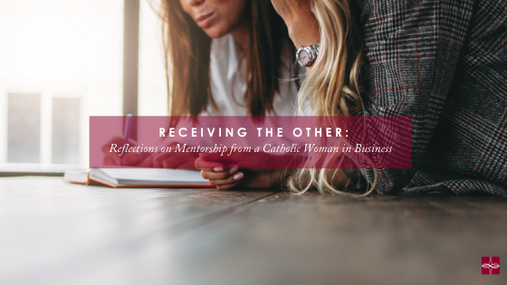

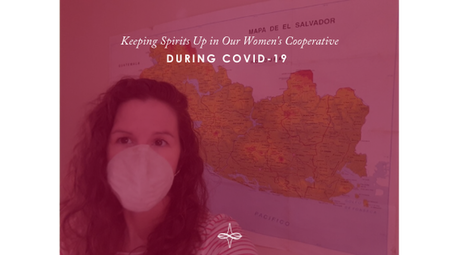



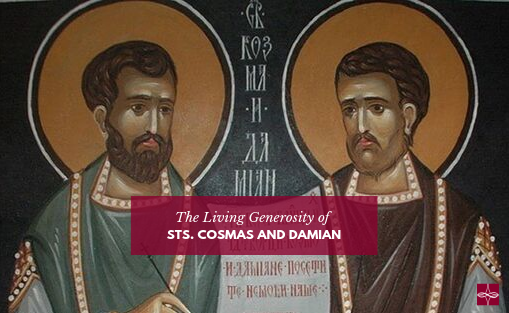

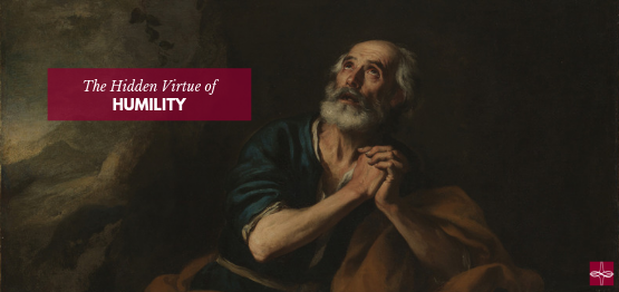

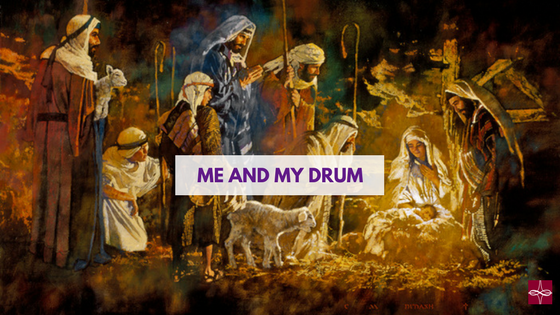

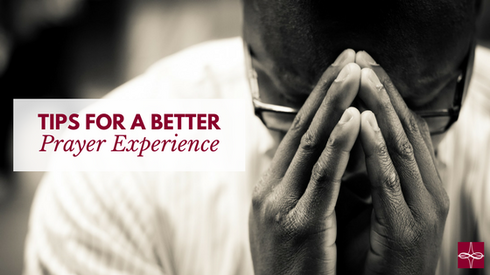

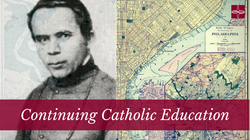

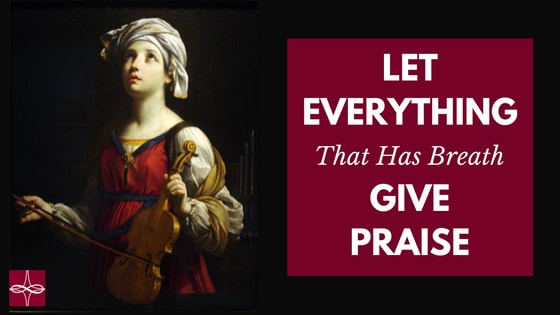

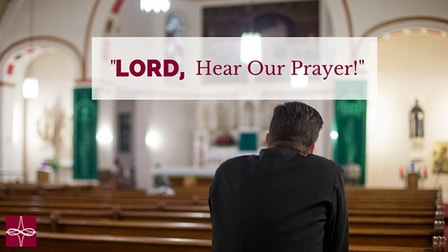

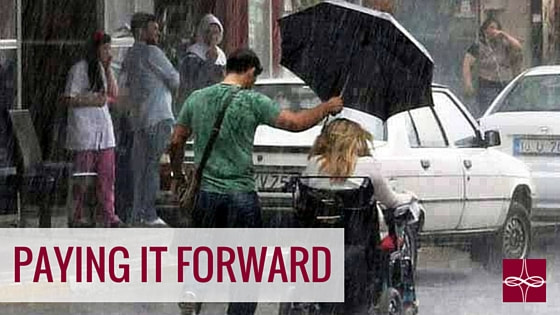

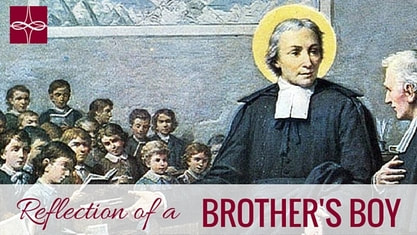






 RSS Feed
RSS Feed